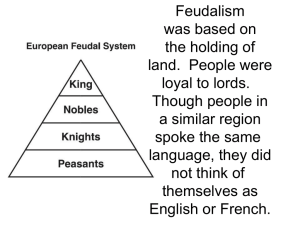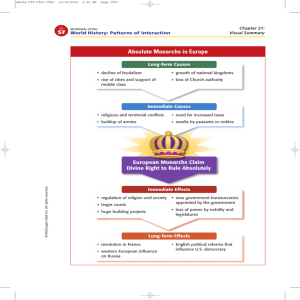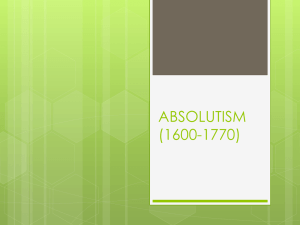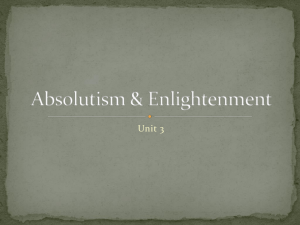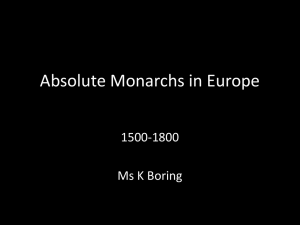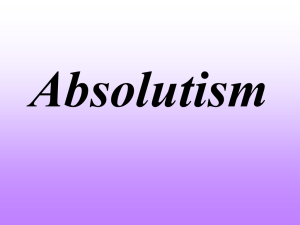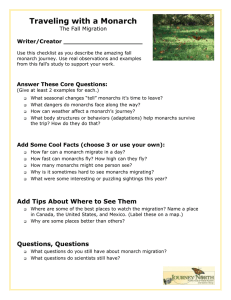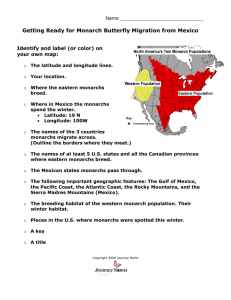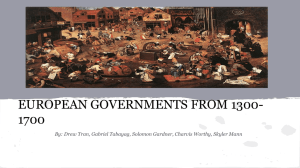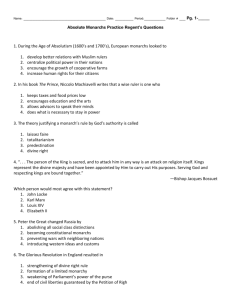10 Characteristics and Absolutism Reading
advertisement
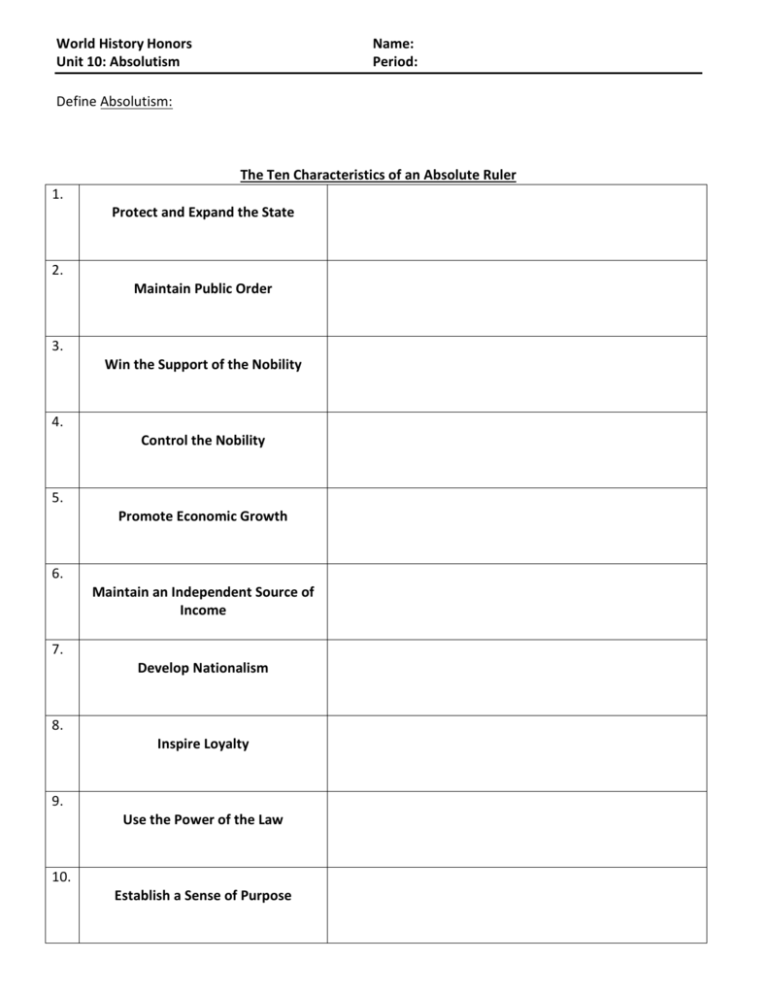
World History Honors Unit 10: Absolutism Name: Period: Define Absolutism: The Ten Characteristics of an Absolute Ruler 1. Protect and Expand the State 2. Maintain Public Order 3. Win the Support of the Nobility 4. Control the Nobility 5. Promote Economic Growth 6. Maintain an Independent Source of Income 7. Develop Nationalism 8. Inspire Loyalty 9. Use the Power of the Law 10. Establish a Sense of Purpose Directions: Read the following passage and answer the questions below: During the next few centuries, many Europeans monarchs would claim the authority to rule without limits. These rulers would be absolute monarchs, kings and queens who believed all the power within their state's boundaries rested in their hands. Their goal was the control every aspect of society. Absolute monarchs believed in divine right, the idea that God created the monarchy and that the monarchy acted as God's representative on earth. An absolute monarch answered only to God, not to his or her subjects. As Europe emerged from the Middle Ages, monarchs grew increasingly powerful. The decline of feudalism, the rise of cities, expansion brought on by exploration, and the growth of national kingdoms all helped to centralize authority. In addition, the growing middle class usually backed monarchs, because they promised a peaceful, supportive climate for business. Monarchs used the wealth of colonies to pay for their ambitions. Church authority also continued to brake down (as it had started to during the Middle Ages and the Reformation.) That opened the way for monarchs to assume even greater control. In 1576, Jean Bodin, an influential French writer, defined absolute rule: "The first characteristic of the sovereign [powerful] prince is the power to make general and special laws, but- and this qualification is important- without the consent of superiors, equals, or inferiors. If the prince requires the consent of superiors, then he is a subject himself; if [he consults] equals, he shares his authority with others; if [he consults] subjects, senate or people, he is not sovereign. The 17th century, the Age of Absolutism, was a period of great upheaval in Europe. Religious and territorial conflicts between states led to almost continuous warfare. This caused governments to build huge armies and to levy even heavier taxes on an already suffering population. These pressures in turn would bring on widespread unrest. Sometimes peasants revolted. In response to these crises, monarchs tried to impose order by increasing their own power. As absolute rulers, they regulated everything from religious worship to social gatherings. To seem more powerful, they increased the size of their court. They created new government bureaucracies to control the countries economic life. Their goal was to free themselves from the limitations imposed by the nobility and by representative bodies such as their Parliament. Only with such freedom, could they rule absolutely. 1. Define: put into your own words the meaning of the term absolute monarchy: 2. Identify: put the significance of ‘Divine Right’ into your own words: 3. Predict: what problems may arise because of absolute rulers believing they have ‘Divine Right?’ 4. Infer: how would you feel about an absolute monarch if you were a member of a. the Lower class? b. Middle class? c. Nobility? 5. Determine: why would church authority [power] continue to decline during the Age of Absolutism? 6. Explain: What is Jean Bodin saying in the first sentence of his quote? 7. Summarize: Put Jean Bodin’s quote in your own words- use at least 2 full sentences! 8. Identify: why was Europe engaged in constant warfare? 9. What can you infer is the meaning of 'levy?' 10. Would you like to live under an absolute monarch? Why or why not- support your answer! 2-3 sentences.
